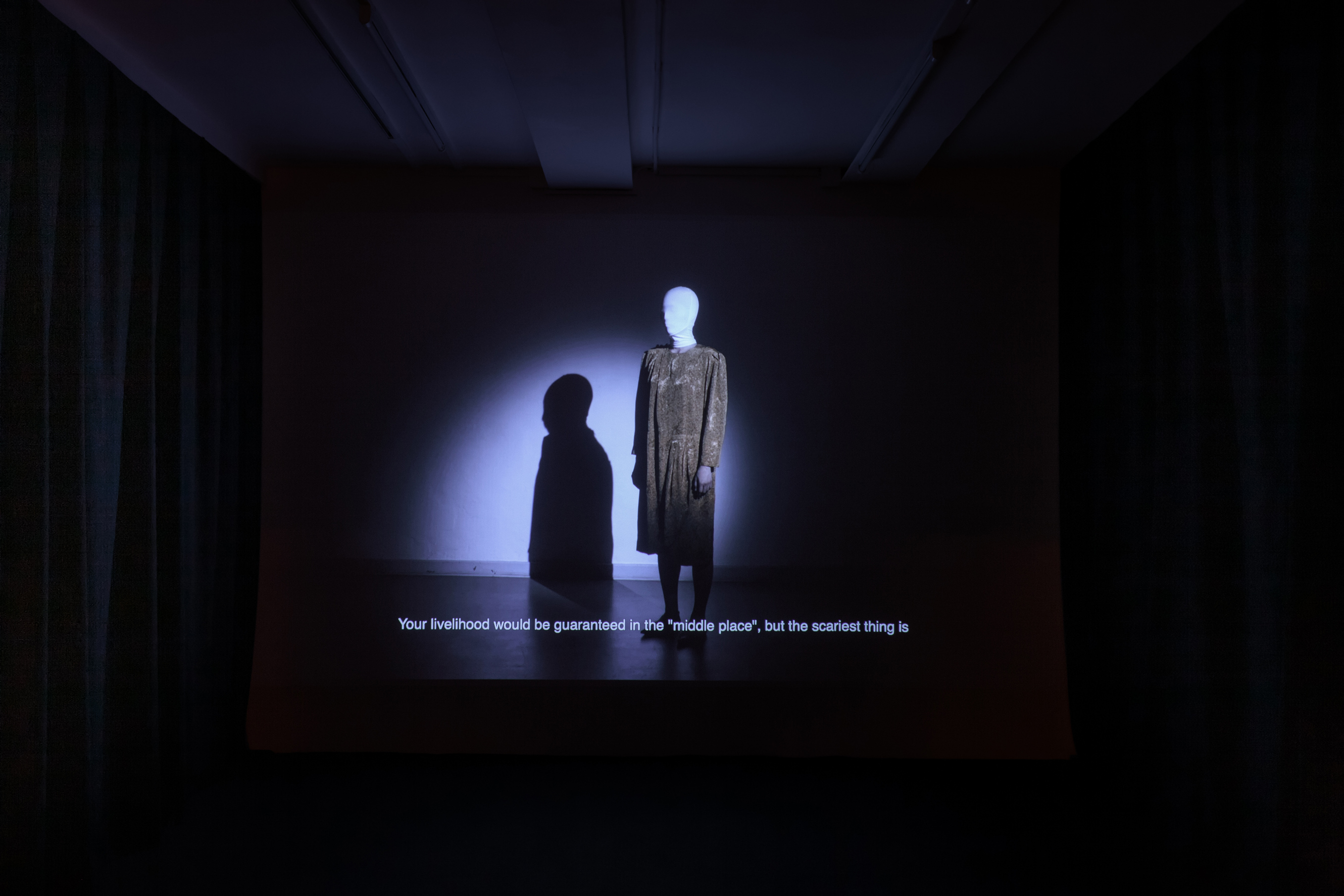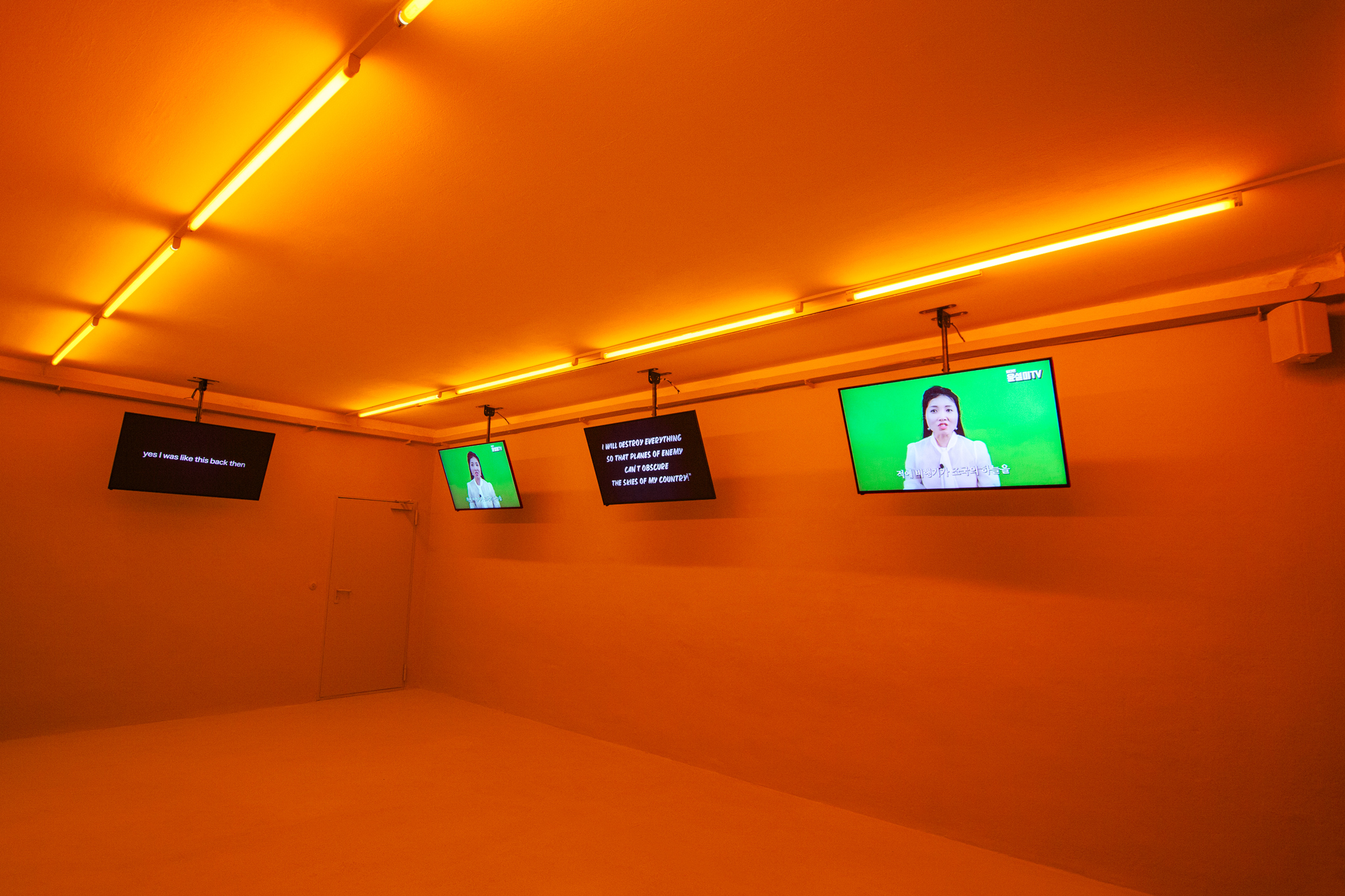Installation, 2022
Berlin Art Prize, Acud Galerie, Berlin






Hana Yoo’s (Busan, South Korea) overarching thesis, questions the complex power system of hierarchical positions through storytelling. This interest places the artist’s practice in a denunciatory tone of capitalist behaviors, underlying in our everyday political and social realities. Through two video works, the exhibition establishes itself as a provocation: What defines our identity and how is it being manipulated? If the eyes are a mirror to your soul, an opposite picture is painted if you can’t look in someone’s eyes. By dissolving the human aspect, pointing it towards a more machinal state, oppressive behaviors and tools become easier to maintain in a well sealed environment.
Bare Life (2021), a loosely structured narrative film, introduces “the place” through a vague description of a prison and a first hand experience of an escape story. The narrator is portrayed anonymously, with a cloth masking their face, a sign which reflects the extent of the prisoner's effects as a refugee and victim. In parallel, the testimony is mixed with non sequential archival footage. First amateur videos of air gun demonstrations, used by pest controllers and secondly technical videos of testing labs which use AI technology in order to detect pain in rats. The obscure pairing between the rat and the refugee demonstrates an ironic but critical tone which examines their possible connection nevertheless set in different reality spheres.
Comparatively, Your freedom song (2022) is a satirical representation of a popular Korean youtuber following her role as a patriotic figure of South Korean political values. As an escapee of “the place”, the online star triggers a sense of tension while setting side to side the military and strategic capacities of both countries. In between, the artist combines clips from the same gun demonstration footage in its preparation stage, projecting the video to an eerie sense of agitated suspense. This capitalist and western format of “show and tell” excuses and allows war and violence to be accessible to a large range of online users. The characters repetitively present the same arguments in extreme public displays, thus creating a vertigo sensation between the objectification of such sensitive subjects which is then overcome with social mechanisms of approval such as likes, views and comments. By the end, the exhibition should be seen as a continuous loop of anxiety and discomfort, where both realities are complemented and differing simultaneously: a double sided representation of the present context in South Korea.
Curatorial Text: Francisca Portugal / Edit: Berlin Art Prize
Your Freedom Song
4 channel video, HD, color, stereo, 6’40’’, 2022

Your freedom song, still, 2022

Your freedom song, installation view
All Photos: Sandra Gramm, Courtesy of the Berlin Art Prize
All Photos: Sandra Gramm, Courtesy of the Berlin Art Prize